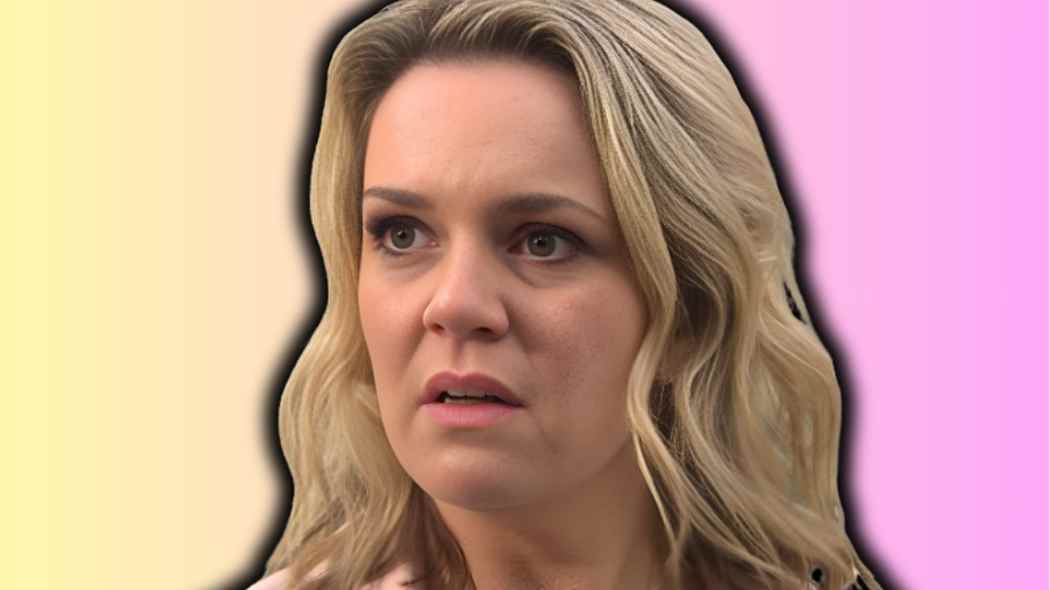Joanne Cardsley: The Complex Villainess of Hollyoaks and the Dark Psychology Behind Her Character

In the world of British soap operas, certain characters leave a lasting impression not because they are kind-hearted heroes, but because they challenge the audience’s emotions in unexpected ways. Joanne Cardsley is one such character. Introduced into the award-winning television drama Hollyoaks in 2015, she instantly became a talking point among viewers. She was portrayed as intelligent, attractive, emotionally complicated, and dangerously determined. In a show filled with rivalries, secrets, betrayals, and complex relationships, Joanne stood out as a character who was capable of manipulating any situation for her own desires. Her story combined obsession, ambition, and personal demons, shaping her into one of the most compelling antagonists of that period.
Early Life and Background
Joanne’s character was designed to carry emotional baggage and unresolved trauma. Long before the events that introduced her into Hollyoaks Village, she had been involved in a secret affair with Louis Loveday, a married man. Even years later, she was still unable to let go of the past. The writers used this backstory to reveal a character who struggled with abandonment, jealousy, and insecurity.
Her entrance into the show did not present her as a villain from the start. Instead, she appeared in a flashback and then re-joined the story later as a solicitor. This professional role highlighted her intelligence and ambition. She was not the typical soap opera antagonist who relied only on threats or violence. Instead, Joanne used strategy, manipulation, charm, and legal knowledge. Her character represented a modern form of villainy: powerful, articulate, and fully aware of the damage she was capable of causing.
Joanne Cardsley’s Storyline in Hollyoaks
When Joanne arrived in Hollyoaks Village, her presence was immediately disruptive. Her primary storyline revolved around her attempts to reconnect with Louis Loveday. She was determined to recreate the relationship they once had, regardless of the consequences. This obsession quickly defined her actions and shaped her entire narrative.
At first, she attempted subtle persuasion. She tried to convince Louis that they still belonged together. When her plans did not work, she turned to more extreme measures. Joanne began to manipulate the Loveday family and other characters around her. She developed schemes, created misunderstandings, and used secrets as weapons.
Her behaviour escalated as the storyline progressed. She crossed moral boundaries, fabricated accusations, manipulated relationships, and even attempted to break up marriages. There were moments when she tried to seduce Louis again, and other moments when she blackmailed characters into staying silent. Everything she did was driven by her desire to control the situation and secure the relationship she believed she deserved.
As tension increased, Joanne grew more dangerous and unstable. Her character was intentionally written to create suspense and emotional conflict. She did not simply want revenge or love. She wanted power over the people who had influenced her past.
The Psychology Behind Joanne Cardsley
One of the reasons Joanne became such a memorable character is the psychological complexity behind her actions. Rather than portraying her as a simple antagonist, the show gave her motives and emotional depth. Her story revealed how obsession can develop when someone feels entitled to another person’s life. Her internal conflict revolved around her fear of abandonment and her inability to move on from her past relationships.
Joanne represented a certain archetype often seen in fiction: the obsessive former lover who refuses to accept rejection. Yet she was not entirely evil. Her backstory hinted at emotional trauma and loneliness. She was someone who wanted love but lacked healthy emotional communication. Instead, she used manipulation and control. These traits made her unpredictable and dangerous, yet strangely fascinating to watch.
She was also professionally competent. As a solicitor, she had the intelligence and strategic thinking to manipulate the legal system, people, and situations. Her personality blended confidence and insecurity, which made her behaviour compelling and terrifying at the same time.
Joanne Cardsley’s Impact on the Loveday Family
The Loveday family became the centre of drama because of Joanne’s manipulation. Louis Loveday struggled with guilt, temptation, and fear. Simone Loveday, Louis’s wife, became a victim of emotional betrayal and psychological pressure. Joanne intruded into their lives like a shadow. She exploited the weaknesses in their marriage and took advantage of their personal vulnerabilities.
The show used Joanne as a catalyst for emotional chaos. Every time she appeared on screen, the audience expected trouble. Whether she was quietly plotting or openly attacking someone’s reputation, she always brought drama, confusion, and tension.
Her presence pushed the Loveday family into some of their most dramatic and emotional storylines. Trust was broken, relationships were damaged, and secrets came to light. Joanne was not just an antagonist; she became the centrepiece of a multi-layered narrative that highlighted the emotional fragility of relationships.
Joanne Cardsley as a Modern Soap Opera Villainess
In British television, the role of villains has evolved. No longer are these characters merely loud and aggressive. Joanne represented a modern interpretation of villainy. She had intelligence, social skills, and patience. She built plans carefully and waited for the right moment to strike. She could act friendly, calm, and innocent while hiding darker intentions underneath.
Her storyline showed how modern soap operas have embraced psychological realism. Instead of making her a simple antagonist, the writers presented her as someone who was deeply human yet deeply flawed. This balance made her both relatable and terrifying.
Viewers could see pieces of reality in her behaviour. Obsessive relationships, emotional manipulation, and toxic jealousy are very real issues in everyday life. Joanne Cardsley was exaggerated for dramatic effect, but her motivations connected with real-world psychology.
The Height of Her Villainy
Joanne’s storyline eventually reached a peak. Her schemes grew more dangerous. She framed people for crimes, interfered in personal relationships, and acted in ways that put characters in emotional and physical danger. As the story intensified, viewers began to see the darker side of her personality more clearly.
Her downfall was dramatic and inevitable. When her lies and schemes began to collapse, the pressure finally caught up with her. She faced serious consequences for her actions, leading to her arrest and eventual exit from the show. Her final appearance did not simply end her storyline; it concluded a dramatic chapter that left viewers with a strong impression of her legacy.
Why Joanne Cardsley Remains Memorable
Even though she was part of the show for a limited time, Joanne Cardsley created some of the most intense storylines of her era. She stood out through her personality, intelligence, and emotional complexity. Viewers remember her because she represented an unforgettable blend of ambition, emotional pain, and obsession.
Characters like Joanne do not exist just to create drama. They reveal how fragile relationships can be and how easily people can be influenced when emotions are used as a weapon. She was the type of character who stayed in the audience’s memory long after her storyline ended.
Conclusion
Joanne Cardsley remains one of the most intriguing villainesses in modern British soap opera history. Her intelligence, obsession, and personal trauma made her a layered and fascinating character. Her actions were often destructive, but they brought unforgettable tension, emotional storytelling, and dramatic moments to Hollyoaks. She was a character who could be admired for her strength and criticised for her morality. This complexity allowed her to stand out as more than just an antagonist. She became a symbol of how powerful emotions can turn someone into their own worst enemy, and how unresolved history can shape a person’s future in devastating ways.



